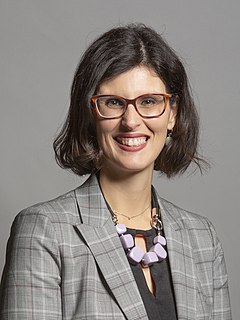A Quote by Newt Gingrich
There are whole states where people [with addiction or mental health issues] can't get to a doctor. If that were true of pancreatic cancer, if that were true of heart disease, if that were true of diabetes, we'd all understand that it made no sense at all. And yet we somehow approach mental health from a very different standard.
Related Quotes
Mental strength is not the same as mental health. Just like someone with diabetes could still be physically strong, someone with depression can still be mentally strong. Many people with mental health issues are incredibly mentally strong. Anyone can make choices to build mental strength, regardless of whether they have a mental health issue.
One of the issues I think is very important, in many communities of color, there's a stigma about mental health. We find that the shaming that comes from acknowledging that one may have some issues that may relate to mental health, often people are not willing to go and seek additional help because of that shaming or that cultural stigma that's associated with it. And I think that we need to make this change in how people approach mental health.
One of the things we need to do is address mental health care as an integral part of primary care. People often aren't able to navigate a separate system, so you see successful models where a primary care physician is able to identify, diagnose, and concurrently help people get mental health treatment who have mental health issues.
Intellectual respectability required mental health, and it was becoming evident to me by then that "mental health" consisted of trusting everyone about everything as much as possible - and, for good measure, poking fun at anyone who didn't. Especially to be trusted were the mass media, whose owners and personnel were not to be regarded as minions of the Establishment because, as they themselves used to attest with confidence, there was no Establishment in the United States of America. Only foreigners and paranoids believed (otherwise).
I learned so much in Zimbabwe, in particular about the need for humility in our ambition to extend mental health care in countries where there were very few psychiatrists and where the local culture harboured very different views about mental illness and healing. These experiences have profoundly influenced my thinking.
The very term ['mental disease'] is nonsensical, a semantic mistake. The two words cannot go together except metaphorically; you can no more have a mental 'disease' than you can have a purple idea or a wise space". Similarly, there can no more be a "mental illness" than there can be a "moral illness." The words "mental" and "illness" do not go together logically. Mental "illness" does not exist, and neither does mental "health." These terms indicate only approval or disapproval of some aspect of a person's mentality (thinking, emotions, or behavior).
I think mental illness or madness can be an escape also. People don't develop a mental illness because they are in the happiest of situations, usually. One doctor observed that it was rare when people were rich to become schizophrenic. If they were poor or didn't have too much money, then it was more likely.
































